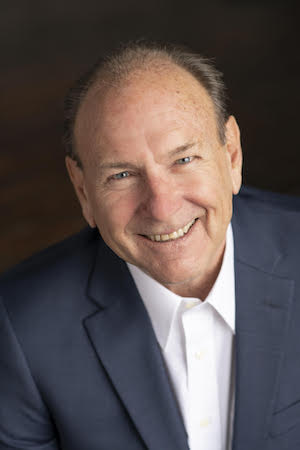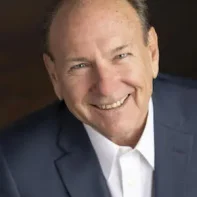When buying and selling are controlled by legislation, the first ones to be bought are the legislators.
— Anonymous
I was trained as an economist, and after numerous years studying economics, I realized a crucial economic reality. That reality was that I made considerably more money dealing cards and dice in a casino — which was how I earned the money to pay for my education to learn economics — than I did teaching economics at a college.

I then did a very rational economic thing: I went back to the gambling industry.
I recently had the opportunity to attend a conference at the Kennedy Center in Washington, D.C., sponsored by the Financial Times. This was my fourth year attending, and I have met some fascinating people there. What’s cool about the conference is that it has a reasonably limited attendance, allowing a person to meet and visit with many of the speakers. The most well-known person I have met there is Henry Kissinger, and the most interesting was Fiona Hill. The most entertaining was Anthony Scaramucci. Additionally, Edward Luce, the U.S. national editor and columnist for the Financial Times, is consistently involved in the conference. He is always engaging.
Due to the conference’s sponsorship by the FT, several sessions address economic issues, and I make every effort to attend these. This year, I had the opportunity to hear Michael Peterson of the D.C.-based Peterson Institute and co-founder of the Blackstone Group, speak, and that was a big deal to me.
I also attended a session where economist and Chair of the Economic Security Project Chris Hughes was speaking, and he was kind enough to autograph his book Marketcrafters for me. Chris was one of the founders of Facebook at Harvard University and has since become known for his philanthropy, and for working toward economic reform. He also played a key role in Barack Obama’s campaign, handling online organizing, and is credited as a significant factor in Obama’s election as president.
Hughes’ book essentially forwards the argument that by understanding and utilizing economic forces, markets can be better shaped to achieve public policy goals. That seems a rather obvious statement, but it is far from being the reality of our world.
It is essential to recognize that Chris aligns with the institutionalist school of economics, and that is an area where I like to hang my hat. Note the bias.
How this applies to sports betting
As I have watched sports betting expand across the U.S. since the repeal of the Professional and Amateur Sports Protection Act (PASPA), I have seen a product rushed to market by an industry that was hell bent on maximizing market penetration. This is consistent with how they would be expected to behave as rational economic actors.
This has been facilitated by a group of politicians who had little understanding of what they were doing, and once legalized, sports betting was overseen by a group of regulators that also had limited knowledge of the reality of betting or the delivery of gaming products via the internet. These are the chaos agents in the system, and through their inexperience, they have developed solutions to betting that are suboptimal on many fronts.
More importantly, their incredible lack of understanding of economics allowed them to devise simplistic solutions to deliver the betting product, which seldom serves the bettors.
From my rather generalist vantage point of the U.S. sports betting markets, it seems there is a hodge-podge of different policies and approaches in terms of the economics of it all. For this essay, I wanted to look at the number of firms supplying the betting product within each jurisdiction. To gain a better understanding of this, I opted to check in with someone who has a quantitative pulse on the sports betting industry, namely Alfonso Straffon. I asked him to send along a sampling of some of the extreme dimensions that one finds between the different states. Alfonso, being Alfonso, sent me a raft of materials.
One is the loneliest number
From the materials provided by Alfonso, we find an online sports betting monopoly in Oregon (DraftKings), although several of the tribal casinos within Oregon offer retail options or are ring-fenced to the casino property. In Rhode Island, there is another monopoly, and sports betting is handled by the lottery, with IGT contracted to provide the platform and the former William Hill (U.S. operations acquired by Caesars) serving as the operator.
These amount to legal monopolies, and we have an overabundance of information helping us understand that monopolies are not too cool, for such reasons as:
- Prices to consumers are generally higher than those in competitive markets.
- Generally, monopolies lead to a lack of innovation in both product development and the production processes.
- Generally, monopolies result in a product of lesser quality.
- Markets that transition from competitive scenarios to a monopolistic structure often result in job losses, as monopolies tend to employ fewer people.
- Monopolistic producers of products generally depress wages.
The general characteristics that would be consistent with a state wanting to have a monopoly provider of a product are if it wanted little innovation, was willing to experience depressed wages, was content with offering an inferior product, was unconcerned with operational efficiencies, and was willing to force consumers to accept higher prices. This is not a model or a system that cares in the least about the betting consumer. This system helps generate revenue for the monopolist and its partner, the state government. Consumers are the last concern.
More than one, but still not enough
The next market structure that surfaces within the United States is an oligopoly. This is a situation involving only a few producers or suppliers. Examples would include Maine, with two providers, Connecticut, which has three providers, and Wyoming, with five. There are others.
The problem with an oligopoly is that it often tends to behave like a monopoly, as evidenced by price leadership schemes and other forms of conscious parallelism that one finds in oligopolies. In short, oligopolies often operate as if they were a single firm supplying the product, i.e., a monopoly.
While it is illegal for firms to conspire with one another to set prices, oligopolies often do this by simply following price changes by a leading firm. This is a form of implicit collusion, and it is legal. One sees this in the airline industry (and many others), as when one firm raises its rates, the other firms tend to follow suit. It can also be seen in non-price dimensions, such as charging for luggage. One starts it, and they all follow.
Again, it is the consumer who loses here.
Better for bettors
The third type of market structure found in betting is semi-competitive. It is comprised of multiple firms, but the firms are not homogeneous. These structures can result in less predictable behaviors. A dominant firm may work to price below its costs to drive out competition. It can also compete along non-price dimensions, such as offering bonus bets, which protect its betting margins while allowing the firm to increase its market share, with the eventual goal of achieving a more manageable and profitable oligopolistic structure.
The point of all of this is that we are developing an industry with a fundamental lack of concern for certain economic realities, and that lack of concern for these economic realities rewards the industry and those in the political domain, all at the expense of the betting consumer. That should always be kept in mind when people whine about the offshore or unregulated markets.
What we should be doing, if we care about the bettor, is always work toward achieving more competitive markets, or to work to cause them to operate as if they are competitive markets. This needs to start now.
Without this, the offshore or unregulated markets will continue to thrive thanks to our governments, with their unlimited demand for revenue and limited understanding of economic realities.
In other words, our governments have an abundance of greed and a shortage of intelligence regarding how market structure can shape the behavior of our betting markets, influence the popularity of offshore and unregulated sites, and penalize domestic betting consumers.
This is the modern world of sports betting in the United States.
—
Richard Schuetz entered the gaming industry working nights as a blackjack and dice dealer while attending college and has since served in many capacities within the industry, including operations, finance, and marketing. He has held senior executive positions up to and including CEO in jurisdictions across the United States, including the gaming markets of Las Vegas, Atlantic City, Reno/Tahoe, Laughlin, Minnesota, Mississippi, and Louisiana. In addition, he has consulted and taught around the globe and served as a member of the California Gambling Control Commission and executive director of the Bermuda Casino Gaming Commission. He also publishes extensively on gaming, gaming regulation, diversity, and gaming history. Schuetz is the CEO of American Bettors’ Voice, a non-profit organization dedicated to giving sports bettors a seat at the table.





